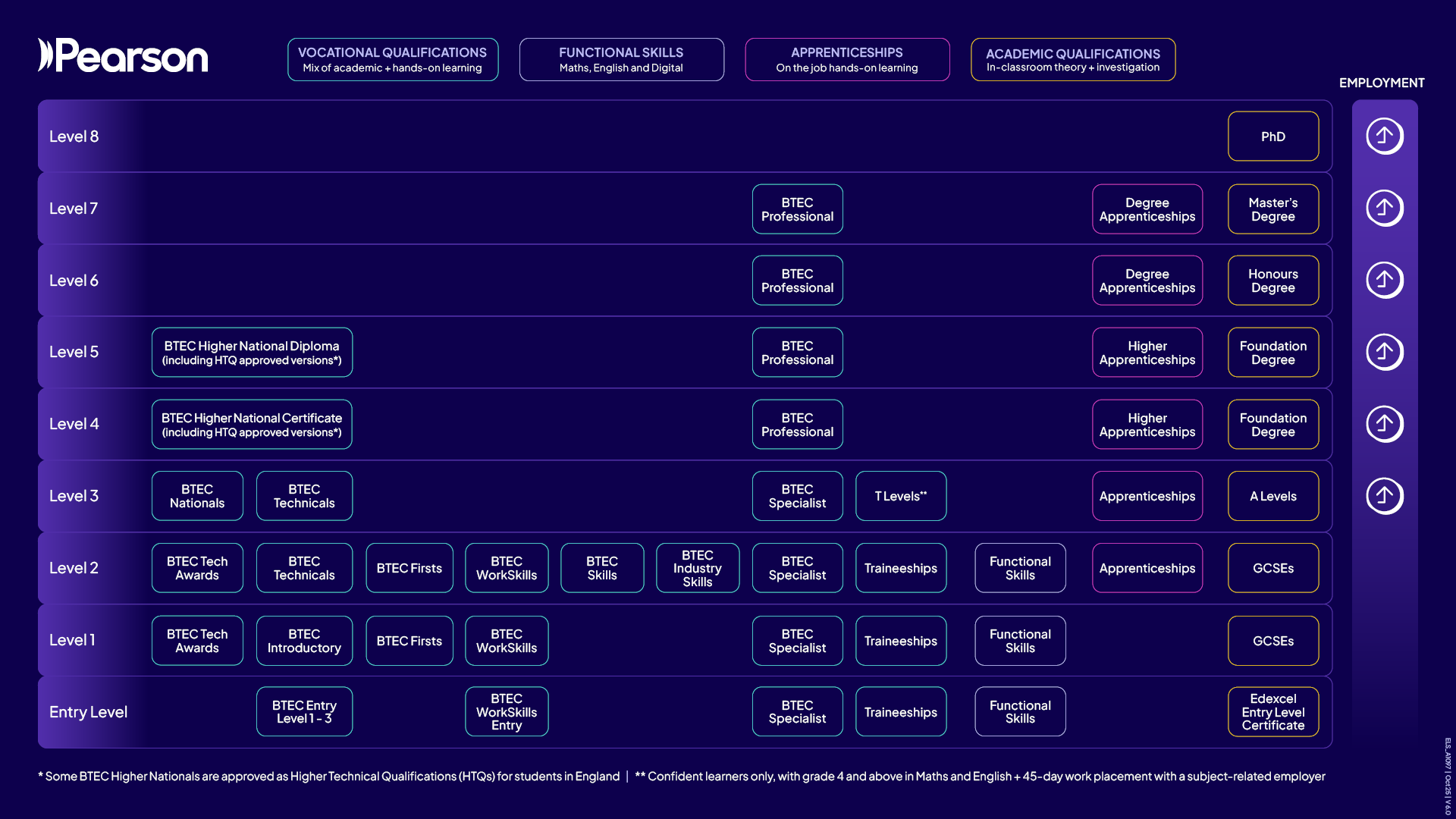Learners and parents
Whether you’re a student or supporting someone who is, we have resources and guidance to support your learning at school or college.
Creating a future for every learner
We provide a range of qualifications for both vocational and academic learners, offering opportunities for progression in their studies.
Our portfolio includes BTEC, T Levels, Higher Nationals, Apprenticeships, GCSEs and A levels.

1 in 5 adults in the UK workforce has a BTEC qualification, so they are qualifications that all employers recognise.

73% of students say they want to learn about topics that are more relevant to them and their lives.

86% of students say they want to learn skills that help them get a job.
Have questions about BTEC?
On 20 October, the government published its Post-16 Education and Skills White Paper, setting out significant reforms to vocational education in England. We know you'll have questions about what this means for you and your child, and we want to provide you with clear information and reassurance.
Below are our FAQs in response to the publication of the white paper. We have made them relevant to a learner, parent or carer.

BTEC Level 3 National Diploma in Civil Engineering
"Being the only one out of 150 students in year 11 to undertake a BTEC qualification as part of an apprenticeship, was the best decision I could ever make."

digital marketing apprenticeship
"My apprenticeship experience has been life changing! I have met so many new people, many of whom are highly experienced in their industries and learned so much."

BTEC Level 5 Higher National Diploma in Sport
"It was not just the knowledge that I gained studying BTECs at a variety of levels, but also the employability skills that have really helped me in the workplace."

design & development
“The T Level programme provided a unique blend of theoretical knowledge and practical experience that has been essential in shaping my career in AI and digital solutions.”







